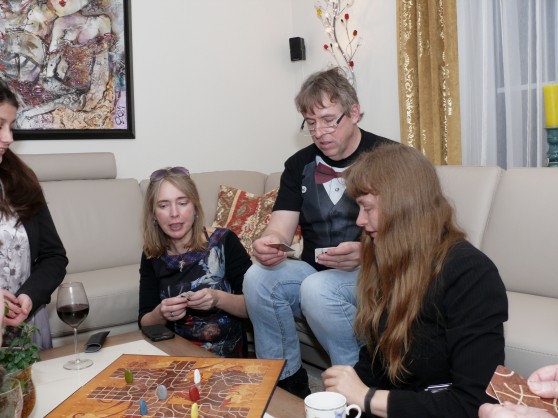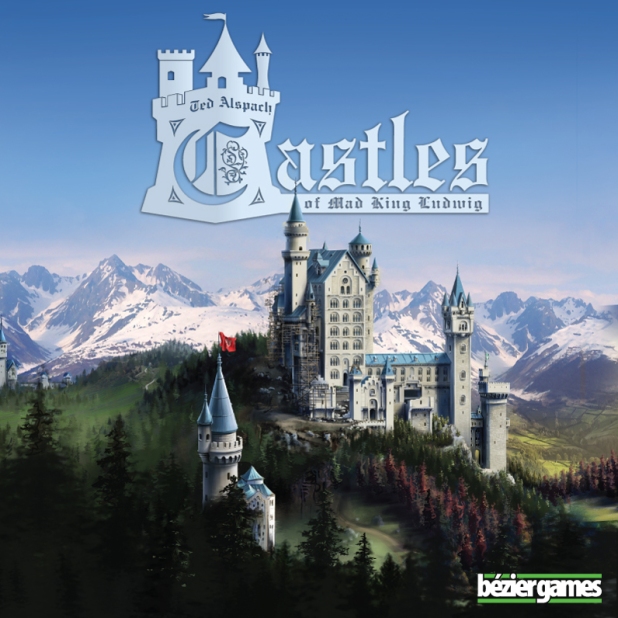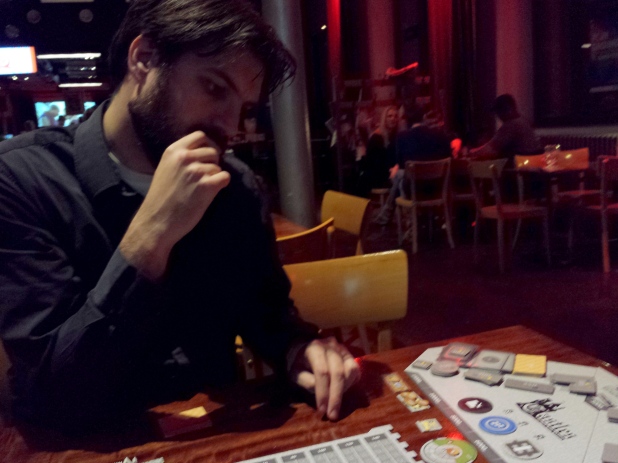We never play games at Christmas, but after the traditional Christmas picture there was a lull, so I swooped in and put Tsuro on the table. Literally the simplest game in the world, *and* you can play with eight. Grandma was all like “I don’t know this game, is it new?”. I got six players in the end, the entire game took fifteen minutes and everyone enjoyed it a lot. Sweet, I win Christmas! I considered whipping out a second game but I didn’t want to push my luck. I’ll save that for next year!
Category Archives: tile laying
Castles of Mad King Ludwig
Castles of Mad King Ludwig is a tile laying game combined with a price setting economy where players sell each other rooms and balance their budgets and acquisitions that way. It’s a very simple and elegant game that creates some pretty crunchy and pleasing gameplay. I’m a fan! Nothing wrong with the theme either, me and Ludwig II go way, way back.
I have a bit of a history with Ludwig that dates back to Gabriel Knight II: The Beast Within. GKII was a point and click adventure game with a kick ass story that centered around Ludwig of Bavaria and the secrets hidden in his amazing castle Neuschwanstein. It had always stuck with me. Last year we finally drove to Bavaria for the first time and visited Neuschwanstein. It was a rainy day, and when I saw it rise up out of the mists… Well, I cried! You can see why Jan was excited about getting me Castles of Mad King Ludwig. He researched it (and by research I mean: watch Rahdo videos) to see if it was any good and bought it at Spiel for a fair bit of of money. Thanks, baby!
Castles of Ludwig is a very simple game with a lot of depth to it. One player is the master builder and sets prices on the rooms that can be bought that turn, but the other players get to pick what they buy first! It’s the old “one kid gets to divide the candy in two stacks, but the other kid gets to pick a stack first” trick that all parents know and love. It creates a very interesting dynamic. Your opponents pay you for the rooms they buy and you really need that money. So you want to stop others from getting rooms that would be fantastic for them, while still convincing them to spend money on one of the rooms that are slightly enticing for them. While also trying to ensure you can grab the room you want for yourself as cheaply as possible.
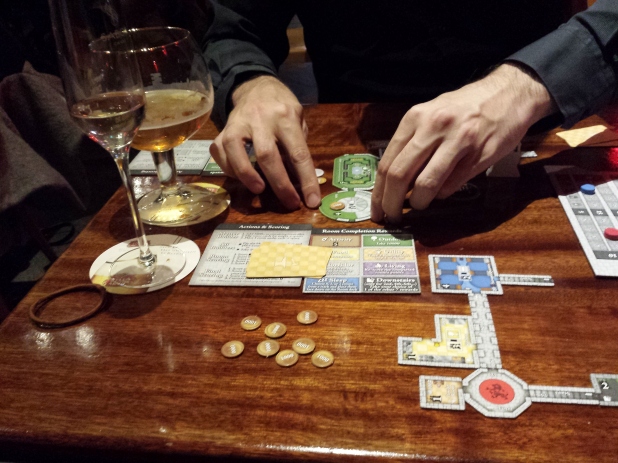
Games in the bar!
The rooms you buy? They go into your castle and can score you points in a gazillion types of ways. You have secret bonuses, achievement bonuses, combo bonuses, bonuses for connecting to all entrances of a room… It’s insane! Not to mention that you have to make sure your new rooms fit into your existing structure. It’s one big satisfying jigsaw puzzle made up for Tetris pieces and bonus scores!
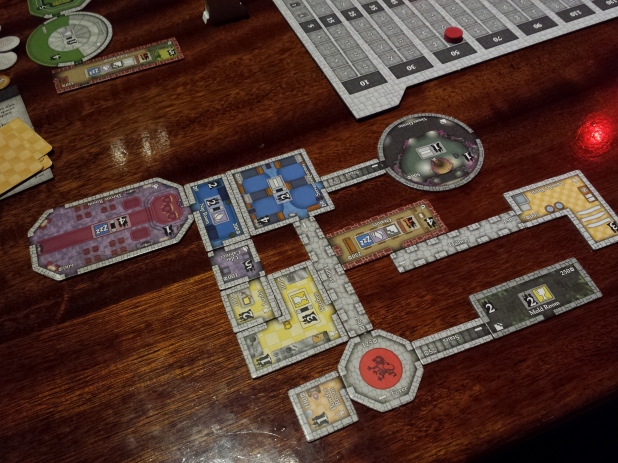
My castle – quite tight! You can only enter it through the throne room. Makes sense, get the formalities out of the way first before everyone chills out in the nap room
And that’s it, I’ve explained the entire game to you. It’s that simplicity that made me hesitant about the game – it just didn’t seem very exciting or fun. I’m glad jan took a chance on it, because it turns out to be a great game. Building your castle is a very pleasing exercise, as is figuring out how to get the most points out of your bricks. We’ve only played it with two, and there the game feels very pleasant. There are tons of ways of scoring points, so it’s just up to you to find the absolute best one.
I also like the price setting phase. I’ve played a few economy games, where the money in the game doesn’t come from ‘the bank’ but from other people’s pools and where the players set up a kind of working money flow (economy) between them. I always find them very interesting: they create fun dynamics between players and usually do a good job of keeping the game balanced. The invisible hand at work, and all that. Unfortunately, they usually rely on auctions: the bluff-poker machismo way of running an economy that makes everyone feel stupid at the end of it. And to add insult to injury, the theme of economic games is often extremely dry (Hello, Container!). Castles is one of the first games I’ve played where the economy part of the game reaches it’s potential as far as I’m concerned.
Price setting is a very gentle mechanic. You don’t want to screw people over per se, but you do want to squeeze as much money out of them as you can. You need them to give you money, after all! The gentleness is aided by the fact that you can’t really be screwed over all that badly. All the rooms usually offer you some benefit, but one of two rooms might be slightly more optimal than others. It has the added advantage of keeping you invested in the game on other people’s turns. You want to keep a good eye on the prices they set and the type of castles they build.
The only downside seems to be that the price setting combined with the point complexity can lead to some hardcore Analysis Paralysis. Half of our table (*cough*Jan*cough*) was suffering from it. But I’m sure that will get better over time as we get to know all the game’s possibilities a little better. I’m looking forward to playing it again!
Update: Played it with four players three times now, and the game play experience was equally thinky and relaxed as the two-player game. It’s also not much longer. Sweet! I have won all the games so far, except the last one where Wim (who played for the first time) when on a combo-hunting spree that landed him a good 20 points before anyone else. Woah, we need to step up our game!

